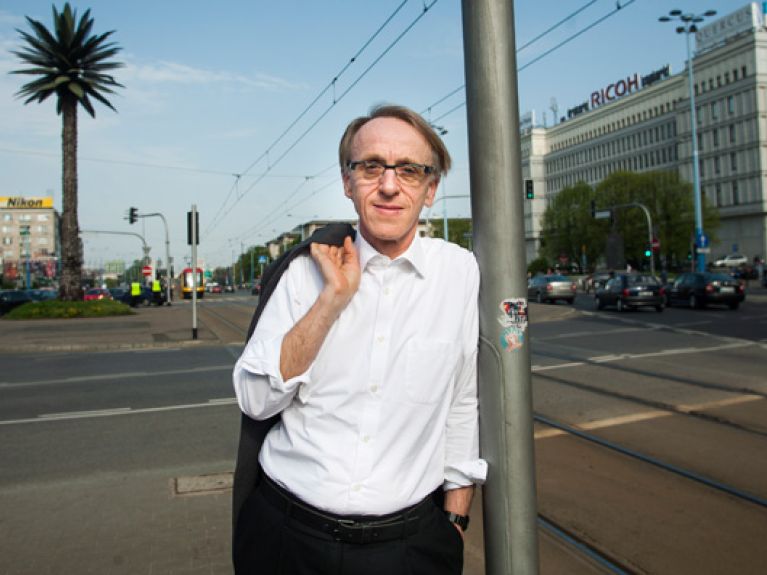“You shouldn’t talk about Europe, you should do it”
Georg M. Blochmann, Director of the Goethe-Institut in Warsaw, would like to see respect for diversity.

Mr. Blochmann, is Europe facing not only a financial crisis, but also a crisis of cultural identity? Shouldn’t the time have now come for culture, the time for a big idea?
I initially tend to be rather sceptical when it comes to big ideas. In the past they have brought the world more harm than good. But the fact that Europe was meant to be a cultural project was recognized long ago by Greece’s unforgotten Minister of Culture Melina Mercouri, who launched the Cultural Capital of Europe initiative in 1985. It was the vision of a continent that defined itself by its common culture. This culture may be shared, but it is not uniform. The fascinating thing about European culture is precisely this diversity. And perhaps then the “big idea” will come to life: the new respect for diversity that also encompasses different political cultures.
What is actually the unifying element in European culture – if we leave aside the historical lines of communication for once?
I admit I find it difficult to define culture beyond historical lines of development. If I attempt to find a concept to describe the new European culture, I spontaneously think of “mobility”. Inner European mobility is totally ahistorical and it is changing our concept of country-specific culture. Who can say today what a German, French or Polish artist is if he or she has lived and worked a few years here and there. And artists are only the tip of the iceberg. Today we no longer cultivate languages and culture heritage competitively, but because we understand them as bridges.
High unemployment and a lack of prospects. What can culture achieve in a climate like this?
Culture is utopian practice. That’s why its task consists of shaping precisely those perspectives that affect the “realistic” close-up view: “Occupy” is a cultural project, “share economy” is a cultural project. And when the theatre in Bochum brings together the four European GM locations in a theatre project following the closure of its local Opel factory, doesn’t that inspire a social perspective?
Héctor Abad, the Colombian writer, is afraid Europe has lost the enthusiasm of its early years. He believes that this contains the danger of populists leading the EU back to nationalistic nightmares. Is that a typical view “from outside”?
You can hear exactly the same thing inside the Union. There are cultural pessimists everywhere. Populists, too. But in this context I would like to refer not to culture, but to people’s unbridled pragmatism. I’m confident that the current “hard slog” continues to be underpinned by a potential for enthusiasm. Just look at the hundreds of thousands of Erasmus students. They know that Europe is fun when they return to their home universities.
Do you have a concept of Europe as a cultural place of yearning?
Istanbul – understood as a symbol for a broader concept of Europe.
How do you perceive the mood in Poland? And how do you respond to it in your programming?
In Poland you notice comparatively little of the frequently cited mood of crisis in Europe. There is a broad pro-European consensus that reaches far into the National-Conservative camp – as paradoxical as that may sound. Here you can still sense some of the joy and enthusiasm that Héctor Abad seeks. You shouldn’t talk about Europe, you should do it. For us that means participating in or initiating large regional and supraregional projects, projects that involve participation as equals in all possible cultural domains. Culture is Europe.
DR. GEORG M. BLOCHMANN is Director of the Goethe-Institut in Warsaw, Poland. Previously, the manager with a doctorate in art history was Director of the Goethe-Institut in Tel Aviv, Israel. www.goethe.de

